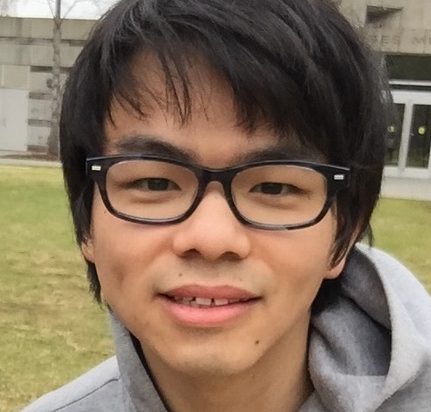Tatsuya Murao Used Boot Camp to Build a Strong Technology Foundation—and Advance Alzheimer’s Research

In the first couple years after graduating college, Tatsuya “Tad” Murao felt like he was at the end of the road. With an economics degree in hand, he wasn’t overly sure where to take himself professionally. At that point, the idea of pursuing a career in technology didn’t even cross his mind.
“I never imagined it for myself,” he said. “I thought the technology field was only for a handful of smart people with programming degrees and strong mathematical skills.”
After a long search, Tad realized reskilling was his best bet at a fresh start. He began searching online and came across the KU Data Analytics Boot Camp. Today, thanks to boot camp, Tad is a data analyst at Arcos Analytics, a company that builds data visualizations for local businesses. In his free time, he pursues his own research on how virtual reality (VR) can help dementia patients. Read about Tad’s journey below.
What was your boot camp experience like?
It was a great experience—even though the course was tough from start to finish. I had never taken a coding class before boot camp, but the incredible support system it had helped me a great deal. Every week we were exposed to brand-new software and programming languages, and it was extremely difficult to keep up. I picked out a few types of software that I really wanted to master and fully devoted my time to learning those.
How were your relationships with your fellow students, your TAs, and your instructor?
I developed a great relationship with everyone in the boot camp. My instructor was an amazing resource, and my classmates were also very supportive and knowledgeable. I still talk to the TAs, and I share an apartment with one of them! He’s always working on interesting personal projects, so I keep asking him coding questions and continue to learn a lot from him.
Of the group projects you got to work on, which were you most proud of?
Our group conducted an analysis of crime rates and income disparity in Kansas City. We split up the parts based on what we were most passionate about. I was really interested in working on data visualization and dashboards, so I used HTML, CSS, and Bootstrap to create those.
What are you up to now?
I’m currently working as a data analyst at Arcos Analytics, and I really enjoy it. My company is very unique. It’s a small start-up and we don’t have an office, so we all work from home. There’s a lot of freedom: we determine our own hours and have the opportunity to spend 30% of our time on personal research.
I’m using this time to continue developing my analytical skills and conduct personal research on ways that VR can help patients with Alzheimer’s or dementia. I’m reading a lot of statistical books and academic papers. I was inspired to pursue the topic because my grandmother suffered from Alzheimer’s—and it’s been a really impactful experience for me.
What do you hope to do in the future?
Right now my main goal is to learn the brain structure of Alzheimer’s patients and understand its cycles. Ultimately, I want to use this research to create a VR treatment for the condition, develop other effective ways to support patients and their caregivers, and potentially pursue a career as an Alzheimer’s support professional myself. Although it’s not directly related to my new technology skills, if I hadn’t done the boot camp, this path would never have been possible for me.
What was the biggest lesson you learned from your boot camp experience?
The biggest thing I learned was flexibility. When I started the course I was determined to be a data scientist, but I didn’t even fully understand what that was. Now I know that there are so many options in the data field—and countless other professions that can apply data-specific skills. Technology changes every day, and we have no idea what to expect in the market tomorrow—let alone in the next five years. My advice to anyone considering a job in technology is that being adaptable and finding something that you’re passionate about are the keys to surviving in the industry.

 Live Chat
Live Chat
